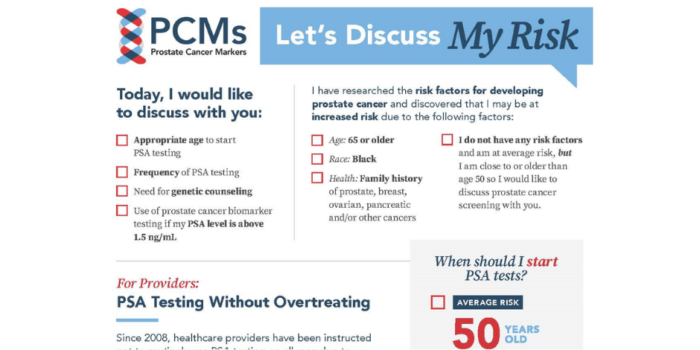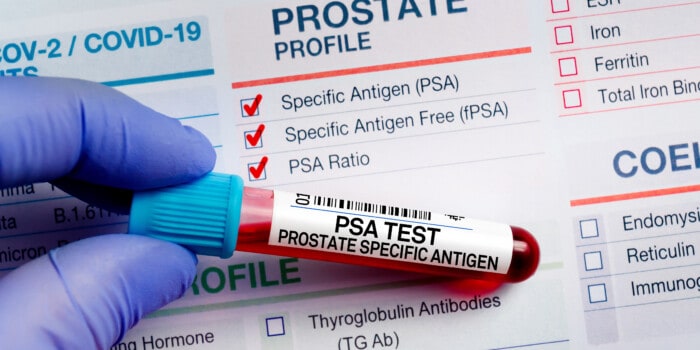
Better Information, Better Decisions
New and innovative prostate cancer tests lead to better informed and effective treatment plans.
Patients
Get more insights about prostate cancer, whether you are assessing your risk beyond the PSA test or treating prostate cancer.
Providers
Use state-of-the-art biomarker tests to inform treatment recommendations for your patients.
What are new prostate cancer tests in 2025?
Prostate cancer biomarker tests provide more insights about prostate cancer risk beyond the traditional PSA test.
New prostate cancer tests in 2025 can alleviate worry and provide more information about prostate cancer treatment. A high PSA test doesn’t always tell the entire story or warrant a biopsy right away.
Prostate cancer tests are also known as prostate cancer markers (PCMs) or prostate biomarker tests. There are different tests based on where someone is on their prostate cancer journey. With the right test at the right time, patients and their healthcare providers can better identify risk, prognosis, treatment and next steps. Most prostate cancer tests in 2025 are non-invasive and can lead to better plans of action for tackling prostate cancer.
Download the Know Your Risk flyer for critical talking points to bring to your healthcare provider.
Take the Risk Quiz to understand your personal risk of prostate cancer.

Learn More
Stay up-to-date with the latest prostate cancer news with the links below.

Why Men Should Get PSA Testing
Men today are more likely to be diagnosed with advanced prostate cancer than a decade ago, with double the number being diagnosed after the cancer has already spread to other parts of the body. Regular PSA screenings coupled with prostate cancer markers could help reverse this trend.

LUGPA Pushes for Regular PSA Screening
Incidences of prostate cancer rose 3% annually from 2014 through 2019, ending two decades of declines. The drop in prostate cancer screenings has played a role in the rise of prostate cancer cases, says Evan Goldfischer, a urologist and the president of LUGPA, the nonprofit urology trade association. “We still are behind in screening men for prostate cancer,” he says. “And as a result, we have been presenting with much more advanced disease.”

Transgender Women at Risk for Prostate Cancer
A new study published in the Journal of the American Medical Association (JAMA) analyzed 22 years of data and found 14 prostate cancer cases per 10,000 transgender women. While a small study, it's the first that looks at prostate cancer in transgender women.
